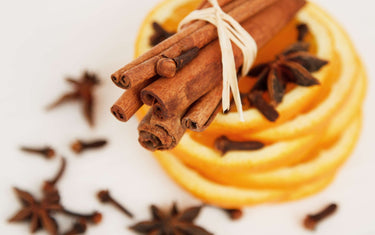- Home
- Pure Essential Oils
- Cinnamon (Bark) Essential Oil
Cinnamon (Bark) Essential Oil
-

- Cosy
- -
- Warming Aroma
- -
- Festive Favourite
-

Over £35
30-Day Returns
Share this product
Over £35
30-Day Returns
Share this product
- Louise H.Verified Buyer2 weeks agoRated 5 out of 5 starsCinnamon (bark)
Perfect
Was this helpful? - Angela S.Verified Buyer2 weeks agoRated 5 out of 5 starsA lovely Christmas vibe all year round
Lovely fragrance and super quality
Was this helpful? - Natalie B.Verified Buyer3 weeks agoRated 5 out of 5 starsUltimate travel companion
This cinnamon oil when combined with coconut oil and or tallow, you have toothpaste/deodorant / antiseptic cream! Smell stays on your clothes too, any skin conditions you might be experiencing whilst you’re away are stopped in their tracks…just wonderfully reassuring🥰❤️
Was this helpful? - Anouk f.Verified Buyer3 weeks agoRated 5 out of 5 starscinnamon thingy
great product - just don't apply on skin; some marvellously fantastic idiot found out it burns lol
Was this helpful? - Deanne S.Verified Buyer3 weeks agoRated 5 out of 5 starsLove cinnamon
Can’t wait to use this scent. Smells amazing
Was this helpful?
Quality Matters
100% PURITY
"Why are your oils so affordable?"
A fair question, and one we love to answer. We bottle everything in-house. That means no outsourcing, no third-party markups, and full control over quality, from sourcing to the moment it reaches your door.
We save on costs, without cutting corners on what truly matters:
- 100% pure, premium oils
- Vegan friendly
- Bottled and packaged in the UK by our team
You might also like to read

3 min read / 25 April 2022 / Caitlin Devlin
Why you shouldn’t use cinnamon essential oil to plump lips
Here’s how this popular lip-plumping trick can actually be harmful.

2 min read / 1 December 2021 / Laura Garvin Gomez
How to make cinnamon, orange & clove candles for Christmas
Stuck for stocking fillers? Try this festive candle recipe for some homemade gifts.
















